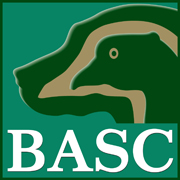 The risks to wildlife and human health from lead ammunition alleged by speakers at the Oxford Lead Symposium, neither of whom have medical expertise, have been exaggerated and distorted by quoting selectively from research, according to the British Association for Shooting and Conservation (BASC).
The risks to wildlife and human health from lead ammunition alleged by speakers at the Oxford Lead Symposium, neither of whom have medical expertise, have been exaggerated and distorted by quoting selectively from research, according to the British Association for Shooting and Conservation (BASC).
Estimates from the Oxford Lead Symposium that between 50,000 and 100,000 waterfowl could be affected are so wide as to represent little more than guesswork and the report itself says that “more precise estimates cannot readily be made.” They are based on extrapolation and are not supported by hard evidence. Despite the worst estimates of bird mortality, there is no evidence of an impact at a population scale.
The effects on human health are similarly distorted and the research appears to take no account of recent Swedish data that shows that properly processing game meat eliminates any contamination. The Food Standards Authority has already issued guidance on game meat consumption – similar to that for tuna and swordfish – to significantly reduce any risk.
BASC chairman Alan Jarrett said: “The presence of a risk alone is no justification for a ban. Risks can be managed and reduced by taking the appropriate actions. BASC has seen nothing to justify extending existing regulations covering lead ammunition.
“Policymakers should be guided by reliable science, robust evidence and the principles of better regulation; none of these are present in the reports from the Oxford Lead Symposium.
“BASC will continue to work with its sister organisations on this important issue and will continue to insist on sound evidence and proper process. We will not let our guard drop.”
ENDS